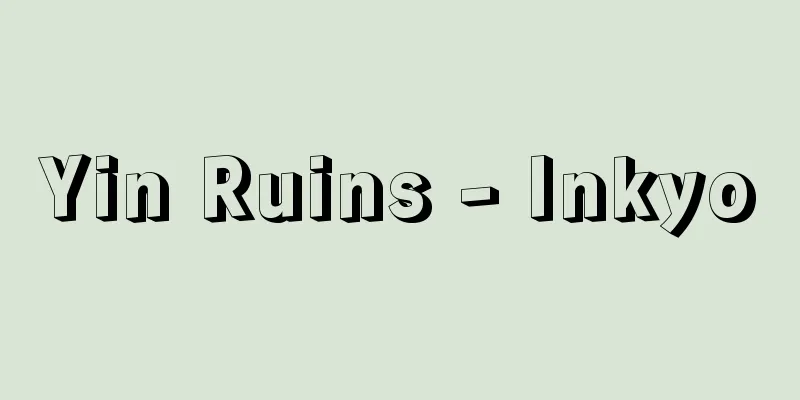Patrilineality

|
A system in which property, status, and rights are passed down from father to son is called patrilineal, and a society in which the right to belong to a kinship group is passed down through the father and in which such patrilineal descent groups have important social and political functions is called a patrilineal society. However, this term has tended to be used rather vaguely, and even within societies that are called patrilineal, there are a variety of descent groups, ranging from those that are only involved in regulating marriage to those like Chinese clans that have common property, are well organized, and function as groups of great political and economic importance. Furthermore, although Japan is rather bilateral in the recognition of kinship categories, it is sometimes counted among patrilineal societies due to the form of inheritance and the fact that it is patriarchal, which is a source of confusion. Patrilineal systems, in the sense of the existence of descent groups, need to be considered separately from patriarchy and patrilocal residence, but it is true that patrilineal systems, patrilocal systems, and patrilocal residence overlap to a great extent compared to matrilineal systems, which also have a single line of descent. In other words, it can be said that patrilineal systems are easier to group together male members of the same descent as a residential unit than matrilineal systems. This may be one of the reasons why patrilineal systems are found overwhelmingly more frequently in societies with a single line of descent. Patrilineal descent groups take various forms, such as lineages, clans, and tribes, depending on their structure. In societies once considered "primitive," these often serve as the only framework for politics. A famous example is the segmental lineage system of the Nuer people in South Sudan. Of course, there are also cases where they continue to function under a centralized system, such as the Chinese clans. [Mitsuru Hamamoto] [Reference] |Source: Shogakukan Encyclopedia Nipponica About Encyclopedia Nipponica Information | Legend |
|
財産や地位、諸権利が父から子供へと継承される形式を父系とよぶが、とくに親族集団への帰属権が父を通して継承され、このような父系出自集団が社会的・政治的に重要な機能をもっているような社会を父系制社会とよぶ。もっともこの用語は、元来かなり漠然と用いられる傾向にあり、同じ父系制とよばれる社会のなかにも、父系出自集団が単に婚姻規制のみにかかわっているだけのものから、共有財産をもち、よく組織され、政治的、経済的にきわめて重要な集団として機能している中国の宗族(そうぞく)のようなものに至るまで、さまざまである。また日本は、親族のカテゴリー認知においてはむしろ双系的であるにもかかわらず、相続の様式と家父長制の事実によって、父系制社会のなかに数えられたりすることもあり、混乱のもとになっている。 出自集団の存在という意味での父系制は、父権制や父方居住といったものとは区別して考える必要があるが、同じ単系出自をとる母系制の場合と比べると、父系制、父権制、父方居住がかなりの程度重なり合って現れることは事実である。つまり父系制は、同じ出自をもつ男性成員を居住単位としてもひとまとめにしておくことが、母系制の場合に比べて容易であるとはいえる。このことが、単系出自をとる社会のなかで父系制のほうが圧倒的に数多くみいだされることの一つの理由かも知れない。 父系出自集団は、そのあり方によって、リネージ、氏族、胞族などのさまざまな形をとる。かって「未開」とよばれた諸社会では、これらが政治の唯一の枠組みとなっていることも多い。南スーダンのヌエルの人々の分節リネージ体系などが例として有名である。もちろん中国の宗族のように、中央集権的な体制のもとでも機能をもち続けている場合もある。 [濱本 満] [参照項目] |出典 小学館 日本大百科全書(ニッポニカ)日本大百科全書(ニッポニカ)について 情報 | 凡例 |
<<: Summary of Military Economics - Bukei Soyo
Recommend
The Three Treasures - Sanbo no Yakko
To sacrifice oneself as a slave to the Three Treas...
Cladonia conistea (English spelling)
… [Hiroyuki Kashiwatani]. … *Some of the terminol...
International Federations
A non-governmental organization that governs the ...
Seven kinds of daughters
Kabuki dance. Nagauta. Original title: Seven Types...
Sedum kamtschaticum Fisch. - Sedum kamtschaticum Fisch.
It is a perennial plant of the Crassulaceae family...
Telephone subscription rights - denwakanyuken
The right for NTT (Nippon Telegraph and Telephone ...
Metal strings
...A general term for musical instruments that us...
Kakizaki Hakyo
Year of death: 22 June 1826 (26 July 1826) Year of...
Davidovsky, M.
...They consider silence to be an important eleme...
Philippe de Taon (Thaün)
A scholarly monk in Normandy, France, in the first...
sweet potato weevil
...An insect of the family Polypteridae (illustra...
Onion thrips (Onion thistle)
A tiny insect belonging to the Thripidae family of...
Araecerus fasciculatus (English spelling) Araecerusfasciculatus
…The larvae are similar in appearance to those of...
Isolation theory
The theory that the isolation of living organisms ...
Sidotti - Giovanni Battista Sidotti
He was the last missionary to infiltrate Japan, w...









